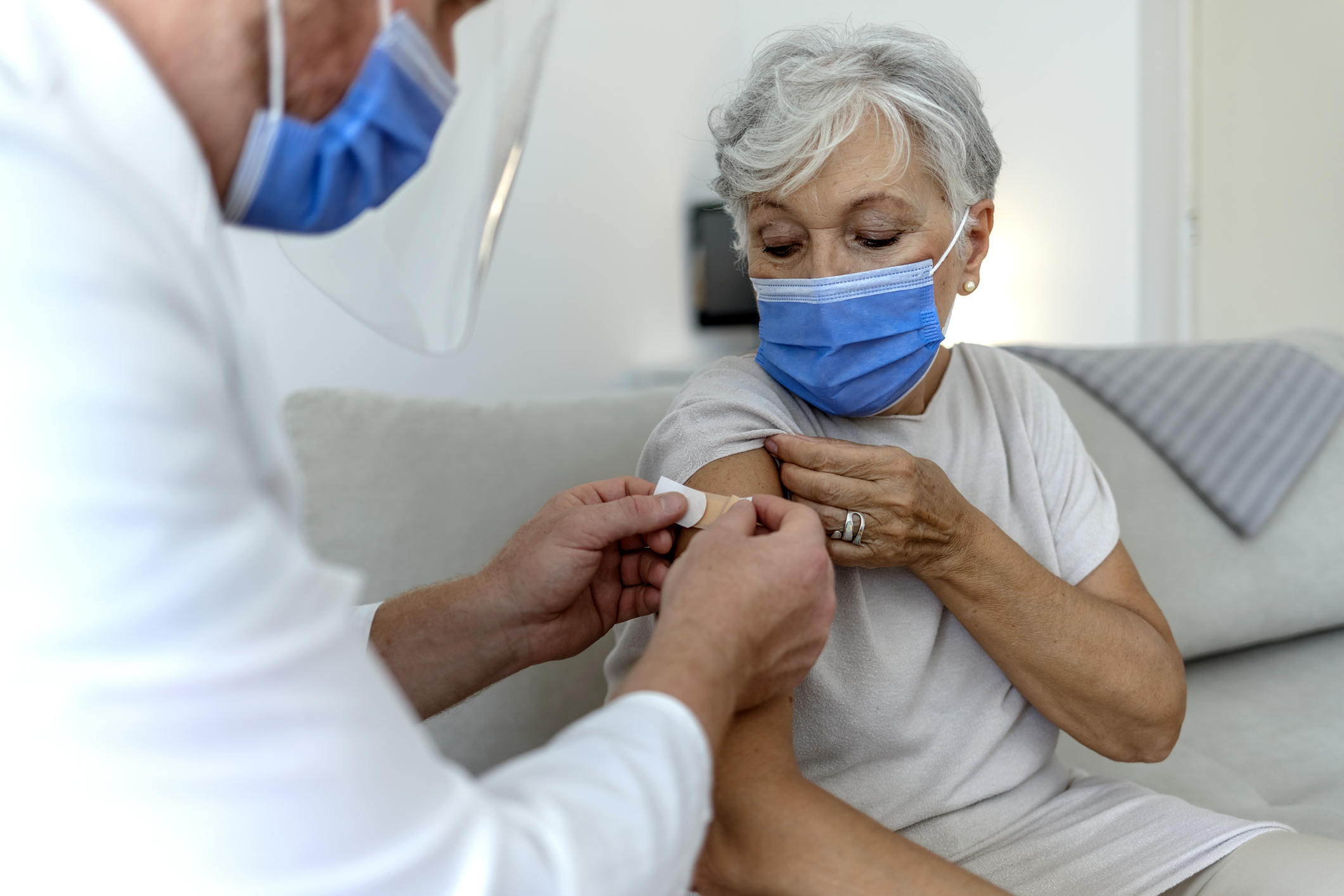The U.S. Department of Health and Human Services (HHS) has shared new vaccine guidance as we approach flu season in light of rising COVID-19 cases. This advice comes with their health initiative, Risk Less. Do More., aimed at boosting vaccination awareness, especially among high-risk groups.
This summer has seen an increase in COVID-19 cases, primarily due to a new variant class called FLiRT. Recent stats show that as of August 10, nearly 20% of COVID tests across the nation returned positive results, and COVID-19 accounts for about 2% of all U.S. deaths, according to the CDC.
Unlike typical respiratory viruses that peak only in winter, SARS-CoV-2 infections have spiked in summer too, a trend experts attribute to the behavior of emerging variants.
As temperatures drop, the U.S. faces the dual challenge of COVID-19 along with seasonal colds and flu. “Cold weather typically brings a surge in respiratory illnesses like COVID-19, flu, and RSV, leading to hospitalizations and potentially fatal outcomes,” noted HHS Assistant Secretary for Public Affairs, Jeffery A Nesbit.
The aim of the Risk Less. Do More. campaign is to build public confidence in vaccines that help prevent serious illnesses from these viruses, while providing the necessary info for making informed vaccination decisions this fall and winter.
Every year, respiratory infections lead to numerous hospitalizations, but vaccinations can help your immune system recognize and fight these viruses without causing illness.
“As we head into fall and people gather indoors, I urge everyone to get vaccinated for their own and others’ safety,” said HHS Secretary Xavier Becerra. “The Biden-Harris Administration is dedicated to ensuring everyone has access to essential health information. We will continue our efforts to make health resources available for all.”
The CDC recommends that everyone aged 5 and over receive one dose of the updated COVID-19 vaccine. However, the HHS has identified specific vulnerable groups that stand to benefit most from vaccination:
- Individuals aged 65 and older
- Pregnant individuals
- People with certain health conditions, including obesity, asthma, diabetes, and heart disease
- Those with weakened immune systems
While the FLiRT variants are different from the virus variant used to develop the latest vaccines, early data shows that these vaccines still offer some protection against severe illness.

“A newer vaccine based on the JN.1 strain or one of the FLiRT subvariants is expected to be available in September, which should provide stronger protection,” the statement noted.
